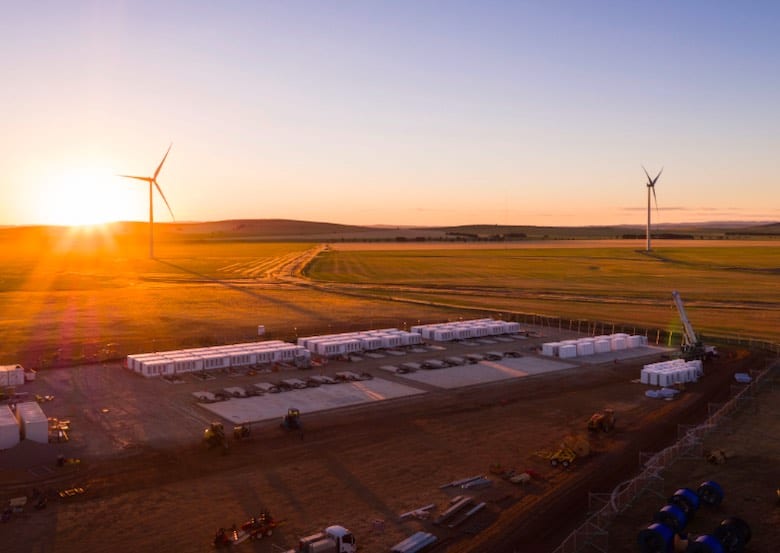And all solar farms are oversized, so the economics are already pushing hybrid solar.
And it is becoming a must have nowadays, just look at the ramp into the evening.
You can install our site as a web app on your iOS device by utilizing the Add to Home Screen feature in Safari. Please see this thread for more details on this.
Note: This feature may not be available in some browsers.
And all solar farms are oversized, so the economics are already pushing hybrid solar.

Those crazy Aussies are at it again:

South Australia may be first big grid in world to go without synchronous generation
South Australia – already leading the world in uptake of wind and solar – could be first gigawatt scale grid to operate without synchronous generation.reneweconomy.com.au
I particularly like to follow the Australian electricity grid (via reneweconomy), and the South Australia grid in particular. They are the ones pushing out the frontier on exactly how a large (gigawatt scale) grid operates strictly via renewables. According to this article 64% of electricity over the last year was wind / solar, with the state having a target of 100% net renewables by 2030. With their progress I sort of expect they achieve that by 2025.

Renewable based seasonal energy storage. The holy grail endgame of storing cheap curtailed solar power for use during the winter. Electrify everything.Hope for hydrogen?

Record-breaking hydrogen electrolyzer claims 95% efficiency
A kilogram of hydrogen holds 39.4 kWh of energy, but typically costs around 52.5 kWh of energy to create via current commercial electrolyzers. Australian company Hysata says its new capillary-fed electrolyzer cell slashes that energy cost to 41.5 kWh, smashing efficiency records while also being…newatlas.com
If this high efficiency electrolyzer is really commercialized it will also allow things like renewable synthetic drop-in fuels to become commercially viable alternative to liquid fossil fuels. Just imagine if we could use today's aircraft with renewable carbon neutral fuel at similar prices to fossil jet fuel.
Right. Imagine a truck stop in the middle of nowhere with a field of solar panels, air capture, electrolysis, and carbon neutral fuel dispensing. Since you're already capturing CO2 from the air, you could probably condense a significant portion of the required water out of the air too. Hmmmm....? viable?And I wonder if there'd still the same need to truck in hydrogen. The fueling stations can produce their own hydrogen by drawing grid power and water. Less hauling of stuff back and forth is another plus, for traffic and for environment.
Electrolysis is only part of the inefficiency of H2. Compression and transport are significant. If that can be eliminated by making H2 where it's needed, it would help. It's a lot easier to transport electricity than H2.And I wonder if there'd still the same need to truck in hydrogen. The fueling stations can produce their own hydrogen by drawing grid power and water. Less hauling of stuff back and forth is another plus, for traffic and for environment.
Compression will always be an issue with FCEV until and unless those vehicles move away from high pressure storage and change to some kind of low pressure storage like adsorption that has been tested in labs for years but has no commercial deployment. This is why I am a proponent of syn-fuels. You can take that energy that would be used for compression and use it to make a more stable compound like ammonia, methane, or longer chain liquid hyrdrocarbons.Electrolysis is only part of the inefficiency of H2. Compression and transport are significant. If that can be eliminated by making H2 where it's needed, it would help. It's a lot easier to transport electricity than H2.
The problem with syn-fuels is that you have to add carbon to the hydrogen and that carbon is released with burned.Compression will always be an issue with FCEV until and unless those vehicles move away from high pressure storage and change to some kind of low pressure storage like adsorption that has been tested in labs for years but has no commercial deployment. This is why I am a proponent of syn-fuels. You can take that energy that would be used for compression and use it to make a more stable compound like ammonia, methane, or longer chain liquid hyrdrocarbons.
I think it's a fair trade as long as the carbon is taken from the environment (air or ocean) and not from underground where it's currently sequestered. That's why it's called carbon-neutral and not zero carbon or zero emission.The problem with syn-fuels is that you have to add carbon to the hydrogen and that carbon is released with burned.

 cleantechnica.com
cleantechnica.com


/cdn.vox-cdn.com/uploads/chorus_asset/file/23355992/110469936.jpg)



